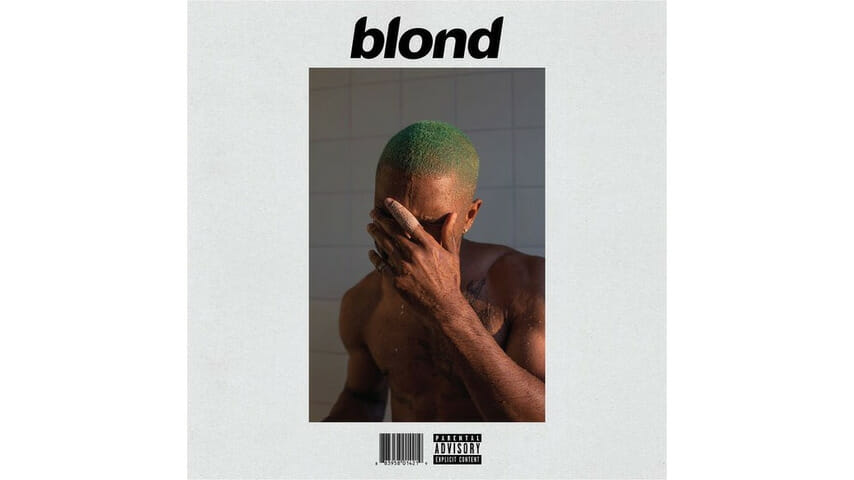Frank Ocean: Blonde

Before it was recognized as a sprawling masterpiece, Frank Ocean’s debut album channel ORANGE was pigeonholed as an overhyped album about coming out of the closet. Prompted by a tumblr note published the week of the album release, that reaction had little to do with the music. The album itself was more concerned with rich dimensions of love, loss and longing than rote sexuality, but Ocean’s sexuality utterly dominated how people talked about the album. It certainly wasn’t a PR disaster—the album eventually went platinum—but for Frank, it had to be maddening: somehow a tiny blog post, an aside, really, eclipsed the grand vision that the post was meant to enrich. It was if he had built a bridge to an island entirely of his own design and all people talked about was the bridge’s suspension cables.
Ocean has mostly existed in suspended animation in the interim between channel ORANGE and Blonde, leaving his fortress of solitude for the occasional feature or broadcasting his thoughts from within its dungeons via oblique tumblr dispatches. His absence from public life has been so absolute that it has spawned memes, conspiracy theories and fan fiction about him being seen IRL. Blonde is just as evasive—Ocean obscures his face on the album cover—but it’s his most resonant work yet, constantly pushing past profound alienation to connect, however fleetingly, to something, someone.
Throughout the album, Ocean flits in and out of memories and relationships, replacing the set pieces of channel ORANGE with slipstream vignettes. “Nights” drunkenly stumbles from a choppy phone conversation with a former lover into a sullen midnight stroll and then a sober recollection of Ocean’s life after Hurricane Katrina. “Signal going in and out,” Ocean sings, unsure of where or when he is. “Pink + White” juxtaposes escaping from floodwaters with recovering from heartbreak, never firmly establishing which one is the metaphor. On channel ORANGE the thrill of the grandiose “Pyramids” was how the song connected past and present through shared names and symbols. On Blonde past and present are nonexistent: time is blurred into oblivion, everything happening at once.
-

-

-

-

-

-

-

-

-

-

-

-

-

-

-

-

-

-

-

-

-

-

-

-

-

-

-

-

-

-

-

-

-

-

-

-

-

-

-

-








































